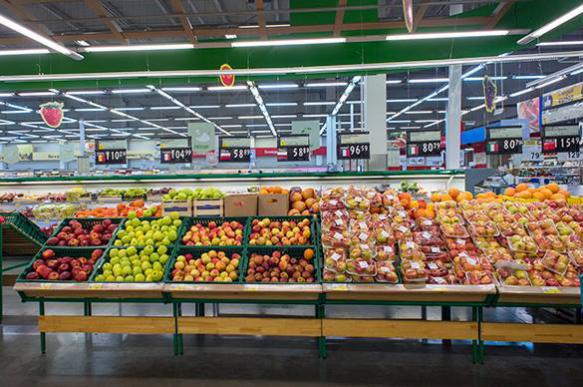Anti-Russian sanctions: Do not rock the boat!
One can hear calls to expand sanctions against Russia on a daily basis. Now the West considers a possibility to impose sanctions for cyberattacks and the killings of civilians in Aleppo. However, as UK Foreign Secretary Boris Johnson said, the biggest paradox in the issue of anti-Russian sanctions is the fact that most of Eastern Europe continues buying Russian gas in huge amounts.

New anti-Russian sanctions on the doorstep
As part of the political campaign to force Russia to accept the idea of the no-fly zone over Aleppo and thereby enforce the Libyan scenario, one can very often hear calls to expand sanctions against Russia. According to Maria Zakharova, an official representative for the Russian Foreign Ministry, representatives for the United States in the IMF and the World Bank were ordered to block the allocation of the funds for programs related to Russia.
In Washington, US officials discuss the new sanctions in the context of the Syrian crisis and cyber attacks, in which the Americans see "a shadow of the Kremlin."
According to White House spokesman Josh Earnest, restrictions against Russia can be most effective, if they are introduced in conjunction with allies and partners. German newspaper Frankfurter Allgemeine Sonntagszeitung wrote on Saturday citing sources close to Merkel that President Obama and the German Chancellor agreed to give a "harsh response" to the Russian aviation industry. The question is to be discussed at a meeting of the European Council this week.
This is where Angela Merkel may come across serous difficulties. It will be hard for her to take new sanctions through regional and European levels. The message about the Russian Air Force bombing the humanitarian convoy in Aleppo produces little effect on the allies, Austrian Contra Magazine wrote. Many people understand that such allegations come as a mixture of lies and half-truth, because there are reliable reports saying that it was a drone that attacked the humanitarian convoy. The UAV took off from the NATO base in Turkey, the author of the publication said.
Representatives of the administrations of German regions share a negative attitude to the introduction of sanctions against Russia. Lower Saxony's Minister for Economy Olaf Lies told the Nordwest-Zeitung newspaper that he did not support sanctions against Russia. The minister believes that judging from the past experience, the new sanctions will not affect Russia. Noteworthy, a delegation of 40 people from Lower Saxony is planning to visit Moscow and the Krasnodar region. Lower Saxony companies work on the Russian market, but their exports to Russia have dropped nearly twice because of the introduction of new sanctions.
No EU country has proposed to introduce sanctions against Russia because of Syria, the EU High Representative for Foreign Affairs and Security Policy, Federica Mogherini, said upon her arrival at the EU Council meeting. Earlier, Mogherini rejected talks on the new sanctions, having said that the international community wanted to revive the political process of the settlement of the Syrian conflict.
In addition, Italian Minister for Foreign Affairs Pablo Gentiloni told the Corriere della Sera newspaper that the Italian government believed in diplomacy rather than sanctions. "The EU is not a tap, from which sanctions flow, and one should not believe that these sanctions can solve all problems," the minister said.
On Wednesday, French Foreign Minister Jean-Marc Ayrault expressed a similar point of view. "At the moment, we do not intend to to discuss new sanctions against Moscow," he said.
Russia's counteractions
In response to Washington's actions, Russia could bring up the issue of sanctions against Saudi Arabia for the bombing of Yemen. Russia could impose sanctions on the USA and the UK for arms shipments to the Saudis.
Wolfgang Ischinger, the head of the Munich Security Conference, said on ARD Hauptstadtstudio that the Europeans were watching the Syrian crisis for too long. Instead, the EU could have taken steps to end the Syrian conflict and make the Americans, as well as their Arab allies, stop supporting Islamists.
Refugees from the conflict zone do not go either to Moscow or Washington - they all come to Europe, so this problem is a big problem that Europe has to deal with, Ischinger, who is a supporter of Euro-Atlanticism, said.
In conclusion, we would like to say that Western sanctions could hurt Russia most if they could disconnect the Russian Federation from the international SWIFT system. Sanctions in the field of the gas industry could be highly damaging too, but they would lead to lamentable consequences for Europe as well.
Lyuba Lulko
Pravda.Ru
Read article on the Russian version of Pravda.Ru
Subscribe to Pravda.Ru Telegram channel, Facebook, RSS!


